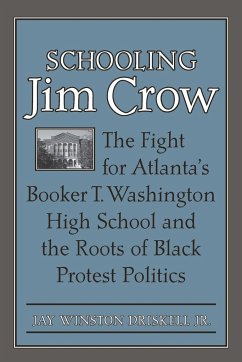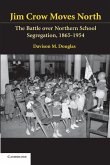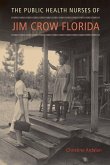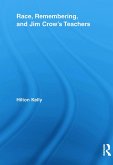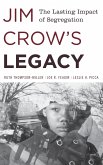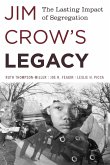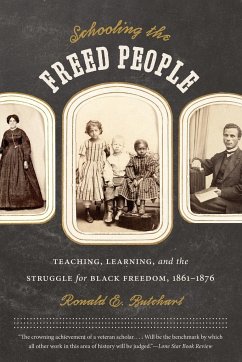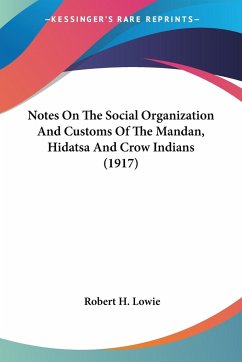In 1919 the NAACP organized a voting bloc powerful enough to compel the city of Atlanta to budget $1.5 million for the construction of schools for black students. This victory would have been remarkable in any era, but in the context of the Jim Crow South it was revolutionary. Schooling Jim Crow tells the story of this little-known campaign, which happened less than thirteen years after the Atlanta race riot of 1906 and just weeks before a wave of anti-black violence swept the nation in the summer after the end of World War I. Despite the constant threat of violence, Atlanta's black voters were able to force the city to build five black grammar schools and Booker T. Washington High School, the city's first publicly funded black high school. Schooling Jim Crow reveals how they did it and why it matters. In this pathbreaking book, Jay Driskell explores the changes in black political consciousness that made the NAACP's grassroots campaign possible at a time when most black southerners could not vote, let alone demand schools. He reveals how black Atlantans transformed a reactionary politics of respectability into a militant force for change. Contributing to this militancy were understandings of class and gender transformed by decades of racially segregated urban development, the 1906 Atlanta race riot, Georgia's disfranchisement campaign of 1908, and the upheavals of World War I. On this cultural foundation, black Atlantans built a new urban black politics that would become the model for the NAACP's political strategy well into the twentieth century.
Hinweis: Dieser Artikel kann nur an eine deutsche Lieferadresse ausgeliefert werden.
Hinweis: Dieser Artikel kann nur an eine deutsche Lieferadresse ausgeliefert werden.

